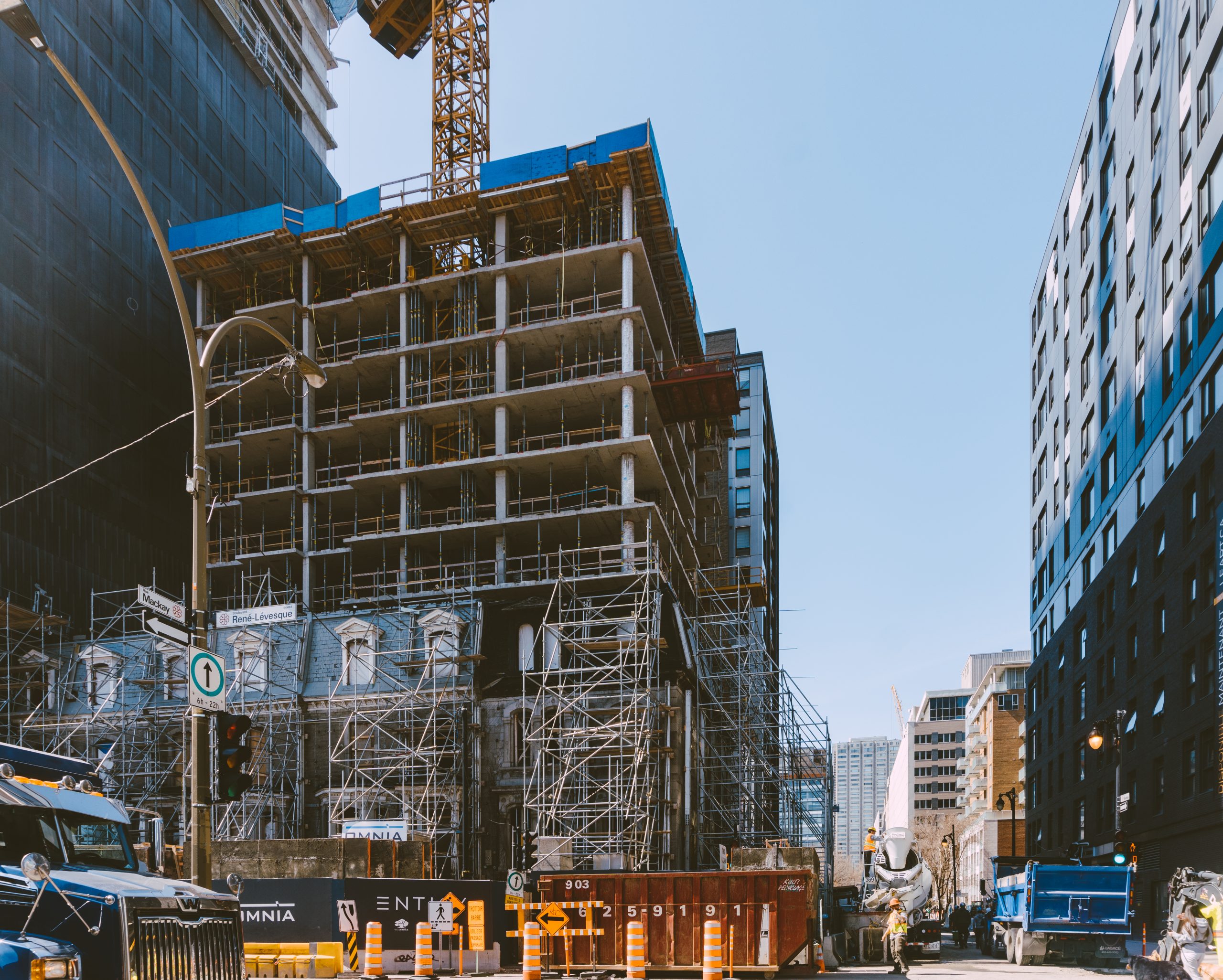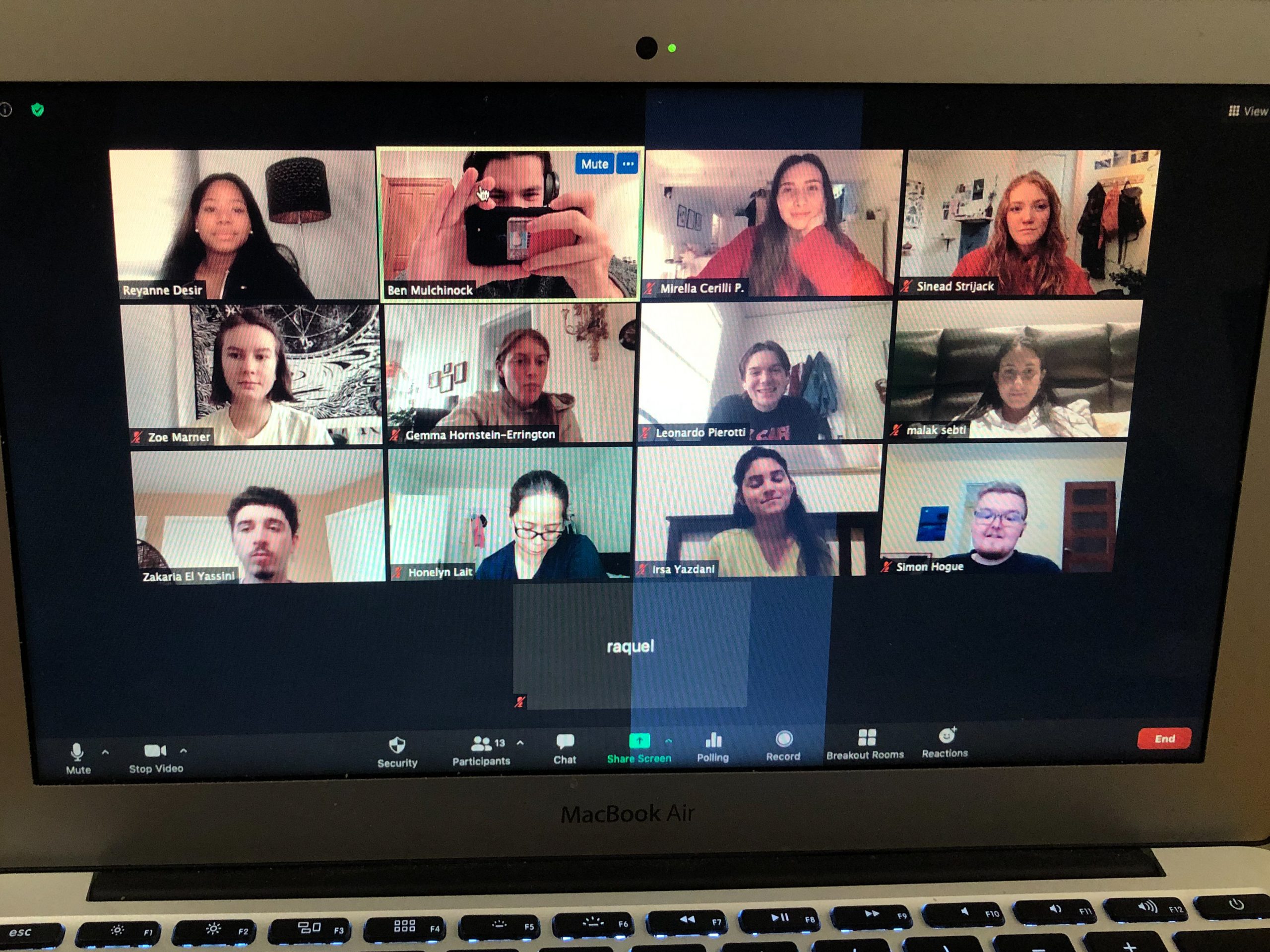On his first day back home in Montreal since their American tour, Sam Roberts is calm and soft-spoken as he sits down on the couch backstage at Musique Plus.
The Metropolis show on Thursday, Nov. 2, will mark the opening date of the Sam Roberts Band’s Canadian tour, which the group is undertaking to support their current musical effort, Chemical City. So while it may feel good to be home, these few days won’t necessarily be a time of rest and relaxation for the Canadian rockers.
But frontman Roberts doesn’t seem to be complaining. Montreal is where he and his band first built a fan base – going from “tiny little clubs with next to nobody” to venues that hold thousands – and all this has allowed them to tour the country and the world, even landing them live gigs in front of millions on American television, like their performance on The Late Show with David Letterman this past summer.
“I think the crowds are as enthusiastic [here] as you can find anywhere – when they’re good. And when they’re bad, they’re as bad as anywhere. Every city has their great nights for us. [But] because [Montreal is] our hometown, we not only expect more from ourselves, we expect more from the show [and] from the crowd because it’s so much more personal to us,” Roberts revealed.
While Montreal might have special meaning for the quintet, who is also drummer Josh Trager, bassist James Hall, and guitarists Dave Nugent and Eric Fare, the “chemical city” that their latest album refers to isn’t necessarily Montreal. “I hate to pinpoint it too specifically geographically,” Roberts said. “There’s an openness to it that’s supposed to communicate across city lines and that’s, to me, the great thing about music – its ability to transcend language. There are obviously specific references to places but those are coincidental things – ‘Chemical City’ is not supposed to be any one specific place. If anything, it’s a collage of different fragments of images of cities all over the world because we’ve been attempting to unify the urban experience,” Roberts explained.
With songs like “The Gate” and “Bridge to Nowhere” that describe a time and place “without trees” that’s missing a soul and “a heartbeat”, and where “you can build a house but you can’t build a home”, Roberts is questioning the deeper things in life. Is a future state of dependence on technology, drugs and substances what we’re heading towards, in an attempt to deny what we’ve done to the planet?
Chemical City is “supposed to represent a city as all cities exist; with a past, a present and a future. A lot of it is a vision into what has yet to happen and a lot of it reflects in my mind what we’re seeing today – a place where we’ve basically stripped our natural environment right out of our lives,” Roberts clarified.
The pondering of such existential themes existed on their debut, We Were Born in a Flame, but from a different point of view. Roberts admitted that there is certainly a change in tone from the previous record, as he finds that he no longer feels like a passive observer of what’s going on in the world but is actively trying to come up with a formula to grapple with these same questions on Chemical City.
Part of this change in mindset has come from the trips Roberts and the band took while writing and recording, which led them to countries as far off as Mauritius and South Africa.
While the traveling didn’t necessarily provide any clear-cut answers and might have even caused the men to ask more questions, Roberts conceded it’s probably so because it just “might be a common thread through a lot of human experiences. We’re overwhelmed by questions and shortchanged in the answers department and this was no exception. But what did come out of it all was an ability to see commonality between somewhere as far flung as Mauritius, dangled out there, and a place like Montreal, my hometown.”
Such commonality, he hopes, will lead him in to the right direction in his attempts to connect and communicate with people. And hopefully, it will also be a move towards more solutions and answers to the big issues and questions that plague human existence. Despite the “seemingly bleak landscape” that Chemical City depicts, Roberts said he feels things definitely aren’t hopeless.
And maybe music will be one of the things that will keep such hope alive. Roberts certainly seems to think so, as the song “Uprising to Down Under” implies: “Whoever said you can’t be saved by a song? Whoever said that was stringing you along ?”
Music is “a vital part of the human experience, one of the best things that we’ve made for ourselves.or maybe not even made. I’m not even sure if we actually make music up,” Roberts contended.
You mean it’s inherent in us? “I think it is in a way and it’s certainly passed down. It’s a tradition since man first came about and even then, where did the first person get their music from? It taps into some other source I think – as airy-fairy, wishy-washy as it may sound, it has that effect on me and a lot of people.”
Is music otherworldly? Perhaps. Or at least to Roberts, it could be. And it’s not something he feels the need to question. He’d rather just accept it for what it is. “I don’t think I can divorce music from my life or even step outside of myself enough to say this is what music means to me. I have a hard time even putting it to words what it means to me or what it means to other people,” he concluded.
Guess that just goes to show the difficulty of describing music without experiencing it firsthand – so we trust the Sam Roberts Band will show us what music really means to them instead.
The Sam Roberts Band plays Metropolis Nov. 2.
9 Ste. Catherine St., E
Tickets are $30-35



